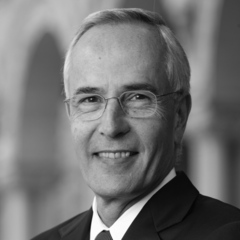European Security Initiative

Stanford Initiative on European Security
Russia’s annexation of Crimea and intervention in eastern Ukraine and its broader effort to alter the post-Cold War European security order have faced Europe with the greatest challenge to its stability and security since the end of the Soviet Union.
Russia’s actions have triggered a new era of uncertainty – and sustained competition – between Russia and the United States and its European allies. Moscow’s motives may be somewhat opaque, but the effects of its actions are unmistakable, particularly in generating anxiety among its European neighbors and condemnation internationally.
Stanford is well positioned to take on this topic, both as an important matter for scholarship and for policy engagement. Researchers across campus have deep expertise in Russia and Europe, and extensive first-hand experience as policymakers in Washington, D.C. and in key European capitals. The European Security Initiative is organized by the Center for International Security and Cooperation in collaboration with the Europe Center, the Freeman-Spogli Institute, the Hoover Institution and other university partners. The initiative focuses on three sets of questions:
- the Russia challenge to Europe’s security, including its conflict with Ukraine and efforts to undermine the post-Cold War European security order;
- developments within Europe that will affect the West’s ability to deal with the Russia challenge; and
- steps that the United States and its European partners can take to maintain and strengthen European security, including through institutions such as NATO, the European Union and Organization for Security and Cooperation in Europe.
The goal of the initiative is to understand the nature of the challenge and Europe’s ability to respond, as well as to define measures and policies the West should take to strengthen stability and security in Europe and the trans-Atlantic region.
The European Security Initiative has a wide group of Stanford affiliates and will arrange for outside speakers, both governmental and nongovernmental, to address these issues. Educating and involving the Stanford community is a critical part of this effort, and Stanford faculty, students, visitors and neighbors will be warmly welcome to participate in a series of public events on Russia, Europe and the United States.
If you are interested in learning more about this initiative, please contact Emilie Silva at emilieds@stanford.edu.
Researchers



















